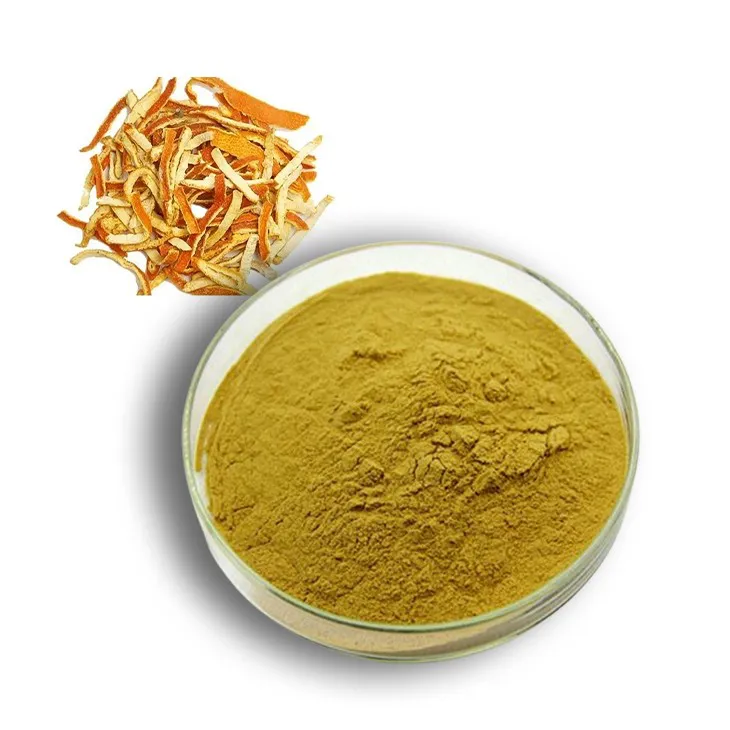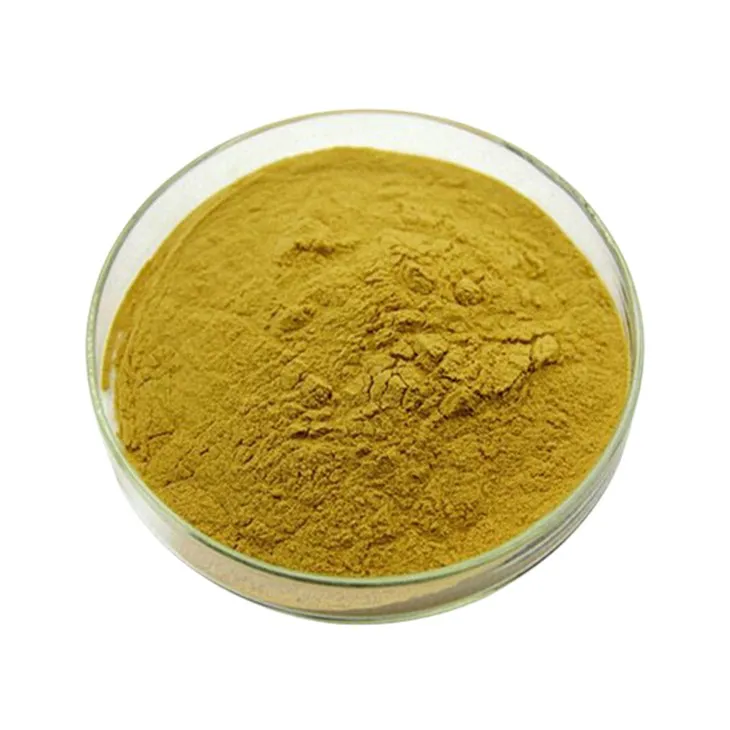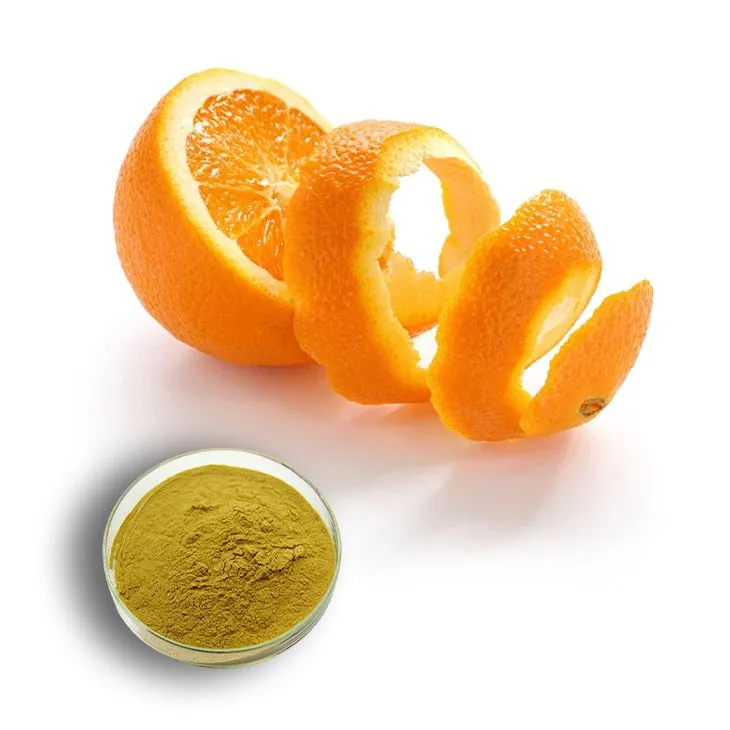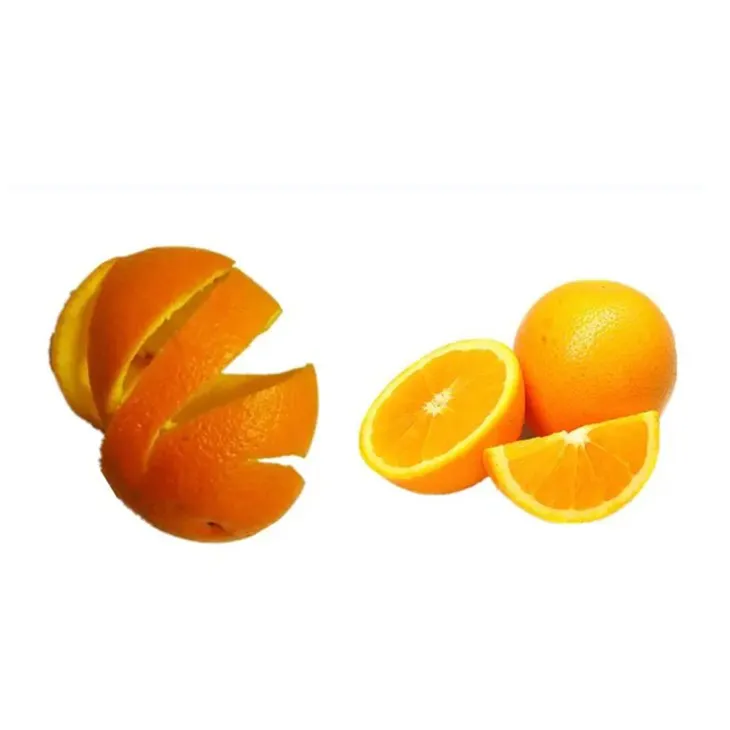- 0086-571-85302990
- sales@greenskybio.com
Hesperidin - Chinese Manufacturers, Suppliers, Factories
2024-12-10

1. Introduction to Hesperidin
Hesperidin is an important orange peel glycoside that has been attracting significant attention in various industries. It is a flavonoid that is abundant in citrus fruits, especially in orange peels. Hesperidin has been studied for its numerous potential health benefits, including antioxidant, anti - inflammatory, and vascular protection properties. This has led to an increasing demand for hesperidin in the pharmaceutical, food, and cosmetic industries.

2. China's Advantage in Orange Resources
China has a distinct advantage when it comes to hesperidin production due to its rich orange resources.
2.1 Vast Orange - Growing Areas
China has large areas dedicated to orange cultivation. These regions have suitable climates and soil conditions for orange trees to thrive. The major orange - growing areas include Guangdong, Fujian, and Sichuan provinces. The extensive cultivation of oranges provides a steady supply of raw materials for hesperidin production. For example, in Guangdong province, the warm and humid climate is ideal for orange growth, and the annual orange yield is substantial.
2.2 High - Yield Orange Varieties
There are also many high - yield orange varieties in China. These varieties not only produce a large quantity of fruits but also have a relatively high content of hesperidin in their peels. Some of the popular orange varieties, such as navel oranges, are known for their rich flavonoid content. This means that for every ton of orange peels obtained from these high - yield varieties, a significant amount of hesperidin can be extracted.

3. Scale and Efficiency of Chinese Manufacturers
Chinese manufacturers of hesperidin are known for their large - scale production capabilities and high efficiency.
3.1 Advanced Production Technologies
Many Chinese factories have adopted advanced production technologies for hesperidin extraction. They use modern extraction methods such as supercritical fluid extraction and enzymatic extraction. Supercritical fluid extraction is a clean and efficient method that can obtain high - purity hesperidin with minimal solvent residue. Enzymatic extraction, on the other hand, can selectively hydrolyze the glycosidic bonds in hesperidin, improving the extraction efficiency. These advanced technologies enable manufacturers to produce hesperidin on a large scale while maintaining high product quality.
3.2 Economies of Scale
Due to the large - scale production, Chinese manufacturers can achieve economies of scale. They can purchase raw materials in bulk, which reduces the cost per unit of hesperidin production. Moreover, large - scale production allows for better utilization of production facilities and human resources. For instance, a large hesperidin factory can operate its extraction equipment continuously, maximizing the productivity of the machinery and reducing the overall production cost.

4. Product Range and Specifications Offered by Chinese Suppliers
Chinese suppliers of hesperidin offer a diverse range of products with different purities and specifications.
4.1 Different Purity Levels
They can provide hesperidin with various purity levels, ranging from low - purity products for general industrial applications to high - purity hesperidin for pharmaceutical use. For example, in the food industry, a relatively low - purity hesperidin may be sufficient for use as a natural antioxidant additive. However, in the pharmaceutical industry, high - purity hesperidin (usually above 95%) is required for drug formulation. Chinese suppliers are able to meet the different purity requirements of different industries.
4.2 Customized Specifications
In addition to different purities, Chinese suppliers also offer customized specifications. They can adjust the particle size, solubility, and other properties of hesperidin according to the specific needs of customers. For instance, if a cosmetic company requires hesperidin with a specific particle size for better skin absorption, the supplier can produce the product accordingly. This flexibility in product specifications gives Chinese suppliers a competitive edge in the international market.

5. Reliability and Service of Chinese Suppliers
Chinese suppliers of hesperidin are highly regarded for their reliability and excellent service.
5.1 Quality Assurance
They have strict quality control systems in place. From the selection of raw materials to the final product packaging, every step is carefully monitored. For example, before the orange peels are used for extraction, they are thoroughly inspected for quality. During the production process, samples are regularly taken for quality testing to ensure that the hesperidin produced meets the specified standards. This commitment to quality assurance makes Chinese suppliers reliable partners for international customers.
5.2 Timely Delivery
Chinese suppliers also pride themselves on their ability to deliver products on time. They have efficient logistics and supply chain management systems. Whether it is a small - scale order or a large - volume shipment, they can ensure that the hesperidin reaches the customers within the agreed - upon time frame. This is crucial for international customers who rely on timely delivery to maintain their production schedules.
6. Quality Control in Chinese Factories
Quality control is a top priority in Chinese hesperidin factories.
6.1 Raw Material Inspection
As mentioned earlier, the inspection of raw materials (orange peels) is the first step in quality control. Only high - quality orange peels are selected for production. The inspection includes factors such as the freshness of the peels, the absence of pesticides, and the content of hesperidin in the peels. If the orange peels do not meet the quality requirements, they are rejected to ensure the quality of the final hesperidin product.
6.2 In - Process Quality Monitoring
During the production process, continuous quality monitoring is carried out. Parameters such as temperature, pressure, and reaction time in the extraction process are closely monitored. Any deviation from the standard operating procedures can affect the quality of hesperidin. For example, if the extraction temperature is too high, it may lead to the degradation of hesperidin. Therefore, strict control of these parameters is essential to produce high - quality hesperidin.
6.3 Final Product Testing
After the production is completed, the final hesperidin product undergoes comprehensive testing. The tests include purity analysis, identification of impurities, and verification of physical and chemical properties. Only products that pass all the tests are allowed to be packaged and sold. This multi - step quality control process ensures that the hesperidin produced in Chinese factories is of high quality.
7. Environmental and Safety Regulations in Chinese Hesperidin Production
Chinese hesperidin factories adhere to strict environmental and safety regulations.
7.1 Environmental Protection
In the production process, measures are taken to minimize environmental pollution. For example, in the extraction process, the use of solvents is carefully controlled to reduce volatile organic compound (VOC) emissions. Wastewater generated during production is treated before being discharged to ensure that it meets the environmental standards. Some factories also invest in environmental - friendly production technologies to further reduce their environmental impact.
7.2 Safety Standards
Safety is also a crucial aspect of hesperidin production. Factories ensure the safety of their workers by providing proper training and safety equipment. For example, workers involved in the extraction process are trained to handle chemicals safely and are provided with protective clothing and masks. In addition, the production facilities are designed and maintained to meet safety standards to prevent accidents such as explosions and fires.
8. International Market Presence of Chinese - Produced Hesperidin
Hesperidin produced in China has made a significant impact on the international market.
8.1 Market Share
Chinese - produced hesperidin has been steadily increasing its market share in the global market. Due to its competitive price, high quality, and diverse product range, it has attracted customers from all over the world. In the European and American markets, Chinese hesperidin has become an important source for industries such as pharmaceuticals, food, and cosmetics. For example, many European pharmaceutical companies are sourcing hesperidin from China to meet their production needs.
8.2 Meeting Global Demand
As the global demand for hesperidin continues to grow, Chinese manufacturers are playing an important role in meeting this demand. They are constantly expanding their production capacity and improving their product quality to keep up with the increasing market requirements. Moreover, Chinese suppliers are also actively exploring new international markets, especially in emerging economies, to further promote the global distribution of Chinese - produced hesperidin.
9. Future Prospects of Chinese Hesperidin Industry
The future of the Chinese hesperidin industry looks promising.
9.1 Technological Innovation
Continued technological innovation is expected in the industry. Manufacturers will likely invest more in research and development to improve extraction efficiency, develop new products, and reduce production costs. For example, new extraction techniques may be developed that can extract hesperidin more selectively and with higher yields. This will enhance the competitiveness of Chinese hesperidin in the international market.
9.2 Market Expansion
There is also potential for further market expansion. With the increasing awareness of the health benefits of hesperidin, new applications in industries such as nutraceuticals and functional foods are emerging. Chinese manufacturers can take advantage of these trends to expand their market share in both domestic and international markets. Additionally, by strengthening cooperation with international partners, they can gain more access to global markets.
9.3 Sustainable Development
Sustainable development will be an important focus in the future. Factories will need to further improve their environmental and safety performance while maintaining economic growth. This may involve the use of more sustainable raw materials, such as organically - grown oranges, and the implementation of more energy - efficient production processes. By achieving sustainable development, the Chinese hesperidin industry can ensure its long - term viability and competitiveness in the global market.
FAQ:
What are the advantages of Chinese Hesperidin manufacturers?
Chinese Hesperidin manufacturers have several advantages. Firstly, China has rich agricultural resources which ensure a stable supply of orange peels for large - scale production. Secondly, they are highly competitive, offering a variety of products with different purities and specifications. Also, they are known for reliable service and timely delivery.
How do Chinese factories ensure the quality of Hesperidin?
Chinese factories focus on quality control at every stage of production. They adhere to strict environmental and safety regulations and continuously improve their production technology to ensure the quality of Hesperidin.
Why is Hesperidin produced in China popular in international markets?
Hesperidin produced in China is popular in international markets because Chinese suppliers offer a wide range of products with different purities and specifications. Also, their reliable service and timely delivery contribute to its popularity. Moreover, the production adheres to strict quality control, environmental and safety regulations.
What role does China's agricultural resources play in Hesperidin production?
China's rich agricultural resources play a crucial role in Hesperidin production. They provide a steady supply of orange peels, which is the main raw material for Hesperidin production, enabling manufacturers to carry out large - scale production.
How do Chinese Hesperidin suppliers meet different customer needs?
Chinese Hesperidin suppliers meet different customer needs by offering a wide range of products with different purities and specifications. Their reliable service and timely delivery also help to satisfy various requirements of customers.
Related literature
- Hesperidin: Properties, Applications, and Production in China"
- "The Global Market of Hesperidin and China's Manufacturing Contribution"
- "Quality Control in Chinese Hesperidin Factories"
- ▶ Hesperidin
- ▶ citrus bioflavonoids
- ▶ plant extract
- ▶ lycopene
- ▶ Diosmin
- ▶ Grape seed extract
- ▶ Sea buckthorn Juice Powder
- ▶ Beetroot powder
- ▶ Hops Extract
- ▶ Artichoke Extract
- ▶ Reishi mushroom extract
- ▶ Astaxanthin
- ▶ Green Tea Extract
- ▶ Curcumin Extract
- ▶ Horse Chestnut Extract
- ▶ Other Problems
- ▶ Boswellia Serrata Extract
- ▶ Resveratrol Extract
- ▶ Marigold Extract
- ▶ Grape Leaf Extract
- ▶ blog3
- ▶ blog4
- ▶ blog5
-
Pure 85% Tomentil Extract.
2024-12-10
-
Red Wine Extract
2024-12-10
-
Chaste Berry Extract
2024-12-10
-
melatonin extract
2024-12-10
-
Passionflower Extract
2024-12-10
-
Citrus Aurantii Extract
2024-12-10
-
Elderberry Extract
2024-12-10
-
Konjac Powder
2024-12-10
-
Selenium yeast
2024-12-10
-
Kupilu Extract
2024-12-10
-
Lycopene
2024-12-10





















